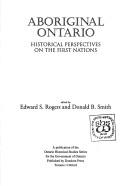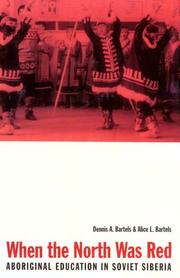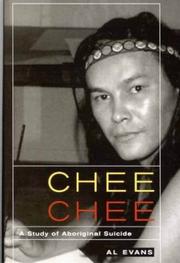| Listing 1 - 10 of 280 | << page >> |
Sort by
|
Book

ISBN: 1003021514 9781003021513 9781000095876 1000095878 9781000095906 1000095908 9781000095937 1000095932 9780367898557 0367898551 9780367898588 0367898586 Year: 2020
Abstract | Keywords | Export | Availability | Bookmark
 Loading...
Loading...Choose an application
- Reference Manager
- EndNote
- RefWorks (Direct export to RefWorks)
What counts as 'indigenous religion' in today´s world? Who claims this category? What are the processes through which local entities become recognisable as 'religious' and 'indigenous'? How is all of this connected to struggles for power, rights and sovereignty? This book sheds light on the contemporary lives of indigenous religion(s), through case studies from Sápmi, Nagaland, Talamanca, Hawai'i, and Gujarat, and through a shared focus on translations, performances, mediation and sovereignty. It builds on long term case-studies and on the collaborative comparison of a long-term project, including shared fieldwork. At the center of its concerns are translations between a globalising discourse (indigenous religion in the singular) and distinct local traditions (indigenous religions in the plural). With contributions from leading scholars in the field, this book is a must read for students and researchers in indigenous religions, including those in related fields such as religious studies and social anthropology.
Indigenous peoples --- Religion. --- Religion --- Aboriginal peoples --- Aborigines --- Adivasis --- Indigenous populations --- Native peoples --- Native races --- Ethnology
Book
ISBN: 9791036560538 9568416927 Year: 2020 Publisher: Santiago Ariadna Ediciones
Abstract | Keywords | Export | Availability | Bookmark
 Loading...
Loading...Choose an application
- Reference Manager
- EndNote
- RefWorks (Direct export to RefWorks)
Set of works of renowned Latin American intellectuals about the current political and social situation in our region, especially after the events of Ecuador, Brazil and Chile
Latin America --- Social conditions --- Politics and government --- Central government policies --- democracy --- neoliberalism --- native peoples --- good living

ISBN: 1281962384 1554880637 9786611962388 9781554880638 9781459713727 1459713729 155002230X 9781550022308 1550022091 155002230X 9781550022308 9781550022094 Year: 1994 Publisher: Toronto [Ont.] Dundurn Press
Abstract | Keywords | Export | Availability | Bookmark
 Loading...
Loading...Choose an application
- Reference Manager
- EndNote
- RefWorks (Direct export to RefWorks)
Aboriginal Ontario: Historical Perspectives on the First Nations contains seventeen essays on aspects of the history of the First Nations living within the present-day boundaries of Ontario.
Indigenous peoples --- Aboriginal peoples --- Aborigines --- Adivasis --- Indigenous populations --- Native peoples --- Native races --- Ethnology --- History.
Book
ISBN: 1315426560 1315426579 1611322944 9781315426570 9781315426556 1315426552 9781315426563 9781315426549 1315426544 9781611322927 9781611322934 1611322928 1611322936 Year: 2016 Publisher: London ; New York : Routledge,
Abstract | Keywords | Export | Availability | Bookmark
 Loading...
Loading...Choose an application
- Reference Manager
- EndNote
- RefWorks (Direct export to RefWorks)
"In the first book ever published on Indigenous quantitative methodologies, Maggie Walter and Chris Andersen open up a major new approach to research across the disciplines and applied fields. While qualitative methods have been rigorously critiqued and reformulated, the population statistics relied on by virtually all research on Indigenous peoples continue to be taken for granted as straightforward, transparent numbers. This book dismantles that persistent positivism with a forceful critique, then fills the void with a new paradigm for Indigenous quantitative methods, using concrete examples of research projects from First World Indigenous peoples in the United States, Australia, and Canada. Concise and accessible, it is an ideal supplementary text as well as a core component of the methodological toolkit for anyone conducting Indigenous research or using Indigenous population statistics"--
Indigenous peoples --- Aboriginal peoples --- Aborigines --- Adivasis --- Indigenous populations --- Native peoples --- Native races --- Ethnology --- Research --- Methodology.
Book
ISBN: 0887554997 9780887555015 0887555012 9780887554995 9780887558108 0887558100 Year: 2016 Publisher: Winnipeg, Manitoba
Abstract | Keywords | Export | Availability | Bookmark
 Loading...
Loading...Choose an application
- Reference Manager
- EndNote
- RefWorks (Direct export to RefWorks)
Indigenous peoples --- Aboriginal peoples --- Aborigines --- Adivasis --- Indigenous populations --- Native peoples --- Native races --- Ethnology --- History.

ISBN: 1282853546 9786612853548 0773565574 9780773565579 0773513361 9780773513365 Year: 1995 Volume: 11 Publisher: Montreal [Que.] McGill-Queen's University Press
Abstract | Keywords | Export | Availability | Bookmark
 Loading...
Loading...Choose an application
- Reference Manager
- EndNote
- RefWorks (Direct export to RefWorks)
Dennis Bartels and Alice Bartels trace the development of Soviet policy towards Aboriginal peoples from 1917 to 1989. Focusing on educational and social policies and practices, When the North Was Red reveals the problems encountered by Native peoples in Siberia and provides insights into Aboriginal issues facing other nations.
Indigenous peoples --- Education --- Aboriginal peoples --- Aborigines --- Adivasis --- Indigenous populations --- Native peoples --- Native races --- Ethnology --- History. --- Autochtones
Book
ISBN: 1486306128 9781486306121 9781486306114 148630611X 9781486306138 1486306136 Year: 2018 Publisher: Clayton South, Vic.
Abstract | Keywords | Export | Availability | Bookmark
 Loading...
Loading...Choose an application
- Reference Manager
- EndNote
- RefWorks (Direct export to RefWorks)
Indigenous Australians have long understood sustainable hunting and harvesting, seasonal changes in flora and fauna, predator-prey relationships and imbalances, and seasonal fire management. Yet the extent of their knowledge and expertise has been largely unknown and under-appreciated by non-Aboriginal colonists, especially in the south-east of Australia where Aboriginal culture was severely fractured. Aboriginal Biocultural Knowledge in South-eastern Australia is the first book to examine historical records from early colonists who interacted with south-eastern Australian Aboriginal communities and documented their understanding of the environment, natural resources such as water and plant and animal foods, medicine and other aspects of their material world. This book provides a compelling case for the importance of understanding Indigenous knowledge, to inform discussions around climate change, biodiversity, resource management, health and education. It will be a valuable reference for natural resource management agencies, academics in Indigenous studies and anyone interested in Aboriginal culture and knowledge.
Indigenous peoples --- Aboriginal peoples --- Aborigines --- Adivasis --- Indigenous populations --- Native peoples --- Native races --- Ethnology --- Australia, Southeastern.
Book
ISBN: 3030699374 3030699366 Year: 2021 Publisher: Cham, Switzerland : Springer,
Abstract | Keywords | Export | Availability | Bookmark
 Loading...
Loading...Choose an application
- Reference Manager
- EndNote
- RefWorks (Direct export to RefWorks)
Indigenous peoples. --- Aboriginal peoples --- Aborigines --- Adivasis --- Indigenous populations --- Native peoples --- Native races --- Ethnology
Book
ISBN: 1782383360 0857450034 085745000X 1782383352 Year: 2011 Publisher: New York : Berghahn Books,
Abstract | Keywords | Export | Availability | Bookmark
 Loading...
Loading...Choose an application
- Reference Manager
- EndNote
- RefWorks (Direct export to RefWorks)
When researchers want to study indigenous populations they are dependent upon the highly variable way in which states or territories enumerate, categorise and differentiate indigenous people. In this volume, anthropologists, historians, demographers and sociologists have come together for the first time to examine the historical and contemporary construct of indigenous people in a number of fascinating geographical contexts around the world, including Canada, the United States, Colombia, Russia, Scandinavia, the Balkans and Australia. Using historical and demographical evidence, the contrib
Indigenous peoples --- Population. --- Ethnic identity. --- Aboriginal peoples --- Aborigines --- Adivasis --- Indigenous populations --- Native peoples --- Native races --- Ethnology

ISBN: 1282861727 9786612861727 0773571787 9780773571785 9780773537590 0773537597 9780773526877 0773526870 Year: 2010 Publisher: Montreal McGill-Queen's University Press
Abstract | Keywords | Export | Availability | Bookmark
 Loading...
Loading...Choose an application
- Reference Manager
- EndNote
- RefWorks (Direct export to RefWorks)
Benjamin Chee Chee lived with anger and frustration for more than thirty years before he took his own life. An Ojibway artist who killed himself just as he was beginning to gain international recognition, Chee Chee is one of the thousands of aboriginal peoples in Canada who have commited suicide. Noted suicidologist and former RCMP officer Al Evans explores Chee Chee's wild, reckless, creative life to reveal how the clash between Native and White society has affected the suicide rate of young Native men and women, now among the highest in the world. Using his in-depth understanding of Native self-destructive behaviour and information from interviews with Chee Chee's mother, close friends, and fellow artists, Evans shows that understanding Benjamin's suicide requires moving beyond psychological analysis to include the damage that contact with White society has caused Native culture, heritage, status, and meaning of life. Evans argues that White society needs to understand these dynamics to be involved in the healing process of Aboriginal peoples in Canada - or to at least avoid hindering their recovery.
Indigenous peoples --- Indians of North America --- Native peoples --- Suicidal behavior --- Chee Chee, Benjamin, --- Death and burial.
| Listing 1 - 10 of 280 | << page >> |
Sort by
|

 Search
Search Feedback
Feedback About UniCat
About UniCat  Help
Help News
News